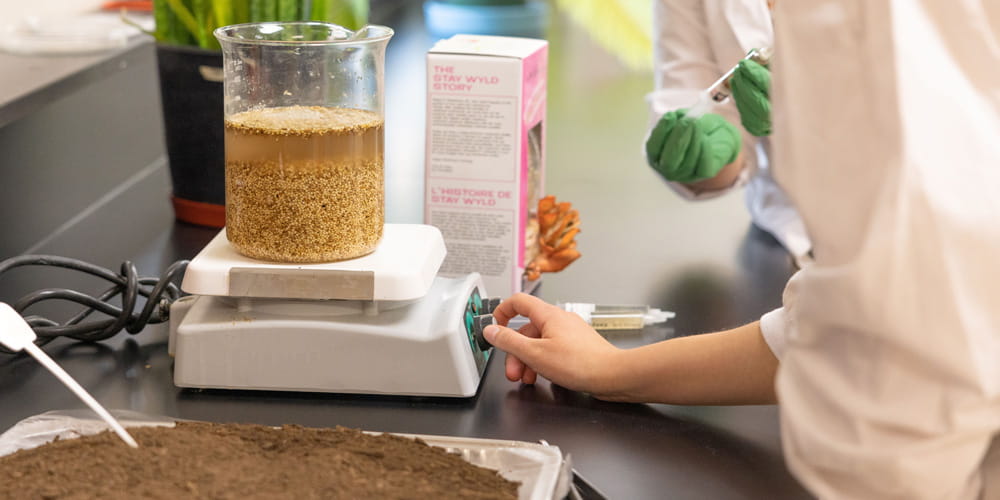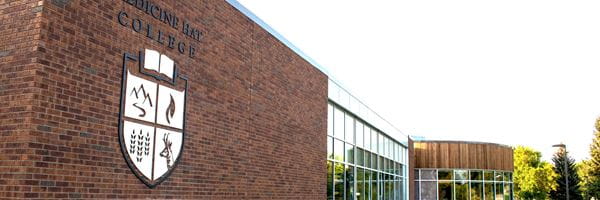MHC’s Centre for Innovation finds function for fungi

A research project that uses fungi to remove heavy metals from soil in the city landfill is currently underway at Medicine Hat College (MHC), thanks to a partnership between its Centre for Innovation (C4i) and the City of Medicine Hat.
Program coordinator and instructor in MHC’s environmental biology and reclamation technology (EBRT) program, Allison Campbell, says there is a large volume of unusable compost in the landfill, a problem she plans to solve using natural processes.
“Compost, made from biosolids of sewage sludge and wood debris, exceeds certain guidelines which limits its use,” explains Campbell. “After surveying possible solutions with students from my environmental assessment course, it was shown that biological remediation using plants, and soil micro and macro-organisms may be possible.”
Fungal mycelium, or fungal threads which live in places where they can decompose, secrete enzymes which may help to break down any exceedances of heavy metals in the soil. Campbell says this process would improve the compost for a wide variety of uses, including agriculture or oil and gas.
Working together with Campbell is first-year EBRT student and research assistant, Abigail McBride, who is currently assisting with literature review, soil sampling, and daily observation of biosolids. She says that learning about the intricacies of fungi and its role in the environment is fostering an interest in specializing in mycology, the study of fungi, after she completes her diploma at MHC.
“The whole role of fungi is to make soil to house life so that they have something to consume,” says McBride. “It’s advantageous for them to be able to degrade or absorb contaminants so that they can continue to have more vegetation to eat. It is really cool, the processes that go into it.”
McBride adds that using fungi boasts many benefits, making the research a potential long-term solution for the City of Medicine Hat.
“Using these natural processes reduces the need to introduce chemicals. It's more efficient and usually less expensive. Once you have mushrooms being produced, they'll continue to spore and you'll have a continual renewal of this resource that’s essential to the process.”
Currently, the researchers are awaiting the arrival of mycelial samples, to begin testing their approach at MHC. If the fungal mycelia proves to remediate the compost, they will consider pelletizing the compost to be sold as a soil amendment.
Assisting in the connection of the researchers to the City of Medicine Hat, Campbell says C4i has been a major factor in making the project possible.
“The Centre for Innovation has been critical in the success of this project. They have provided not only funding, but support and direction in terms of administration, allowing Abigail and I to focus completely on the research. C4i has also provided us with many networking opportunities, including conferences and tech nights.”
To learn more about MHC’s C4i, visit www.mhc.ab.ca.
